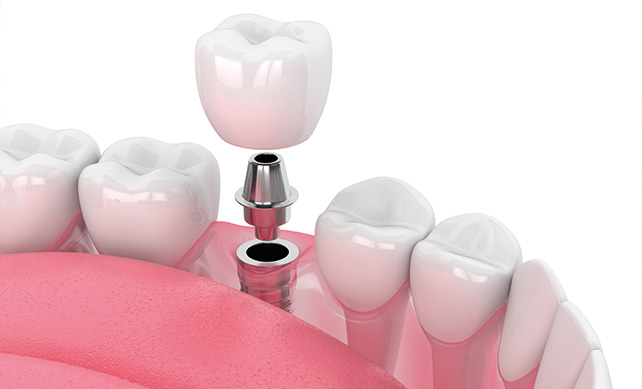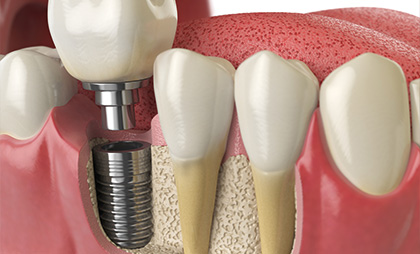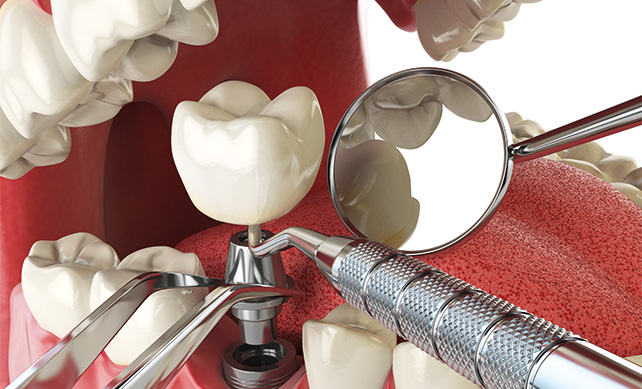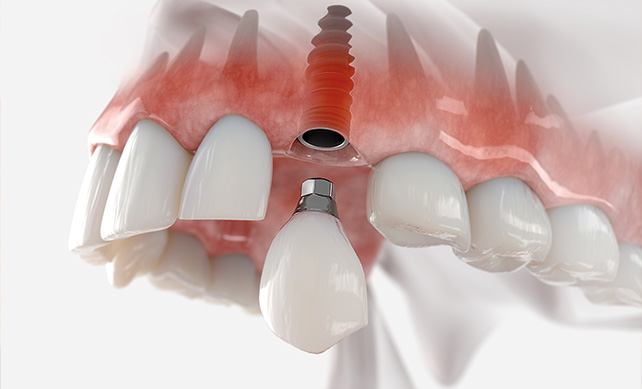What Is The Process Of Dental Implants
Dental implants have become more popular recently. That is due to the advancement of cosmetic medicine, improved operation techniques, and the materials used in the implant. So, the turnout has become eminent for people who want to restore their teeth, oral hygiene, and bright smiles.
Dental implant surgeries are among the most requested types of dental procedures. They are a better solution than removable dentures and feel more like natural teeth. The dental implant process has no specific limit on implanted artificial teeth.
The type of implants characterizes the process. One can implant one or many teeth, with cost differences. Consult your dentist to decide the most suitable option for you. The dentist replaces the missing teeth with implants surgically implanted into the jawbones. The dentist then covers the implants with crowns. These crowns are chosen to suit and naturally fit the teeth in the mouth.



Candidates For Dental Implants
The dentist initiates a comprehensive examination of the patient, akin to any routine check-up. This includes a review of the patient’s medical history to ensure there are no chronic conditions that might contraindicate dental implantation. The eligibility criteria for dental implants encompass:
- Individuals who have lost one or more teeth and seek to replace them with artificial alternatives for either cosmetic or medical reasons.
- Candidates for dental implantation must be free from certain bone-affecting diseases like diabetes and advanced osteoporosis.
- Adequate bone density is essential for the success of dental implants; if lacking, a bone grafting procedure may be recommended.
- Patients desiring dental implants should maintain good oral hygiene and overall oral health.
- Chronic hypertension should not be present in patients undergoing dental implantation.
- Those who are not heavy smokers, defined as consuming more than 10 cigarettes per day.
It’s noteworthy that if a patient lacks sufficient bone density for dental implants, a bone grafting procedure can offer a viable solution.
Pre- Dental Implants Instructions
Here are the instructions and guidelines that must be followed by patients undergoing dental implant surgery to ensure successful outcomes:
- Prior to the procedure, select an oral surgeon renowned for their experience, proficiency, and stellar reputation in performing dental implant surgeries.
- Opt for a reputable dental center known for providing excellent pre and post-operative care.
- Maintain regular oral hygiene practices to ensure the health of your teeth and gums before undergoing dental implant surgery.
- Refrain from consuming alcohol for a week leading up to the surgery.
- Abstain from smoking for a minimum of one week prior to the scheduled surgical date.
Stages Of Dental Implants
Dental implant procedures typically involve several standard stages:
- The dentist prepares the designated area for implantation and then inserts pure titanium implants into the jawbone where the missing tooth is located, mimicking tooth roots.
- The process of bone fusion, where the jawbone and implant integrate, occurs over a period of six months for the upper jaw and three months for the lower jaw.
- The dentist customizes the final composition of the dental implants through multiple sessions using oral impressions. Temporary crowns are placed on the implants until the permanent ones are ready, after which they are affixed to the implants to fully restore the missing tooth.
Dental implantation may entail some mild discomfort, which can typically be alleviated with over-the-counter pain relievers. The procedure generally takes around thirty minutes per tooth. The success rate of implants is approximately 90% for the upper jaw and 95% for the lower jaw, with challenges often encountered in attaching implants to the upper jawbones.
Implanted teeth have the potential to last for over 20 years, contingent upon the patient’s adherence to daily oral health and hygiene practices.



Stages Of Dental Implants
Dental implant procedures typically involve several standard stages:
- The dentist prepares the designated area for implantation and then inserts pure titanium implants into the jawbone where the missing tooth is located, mimicking tooth roots.
- The process of bone fusion, where the jawbone and implant integrate, occurs over a period of six months for the upper jaw and three months for the lower jaw.
- The dentist customizes the final composition of the dental implants through multiple sessions using oral impressions. Temporary crowns are placed on the implants until the permanent ones are ready, after which they are affixed to the implants to fully restore the missing tooth.
Dental implantation may entail some mild discomfort, which can typically be alleviated with over-the-counter pain relievers. The procedure generally takes around thirty minutes per tooth. The success rate of implants is approximately 90% for the upper jaw and 95% for the lower jaw, with challenges often encountered in attaching implants to the upper jawbones.
Implanted teeth have the potential to last for over 20 years, contingent upon the patient’s adherence to daily oral health and hygiene practices.



